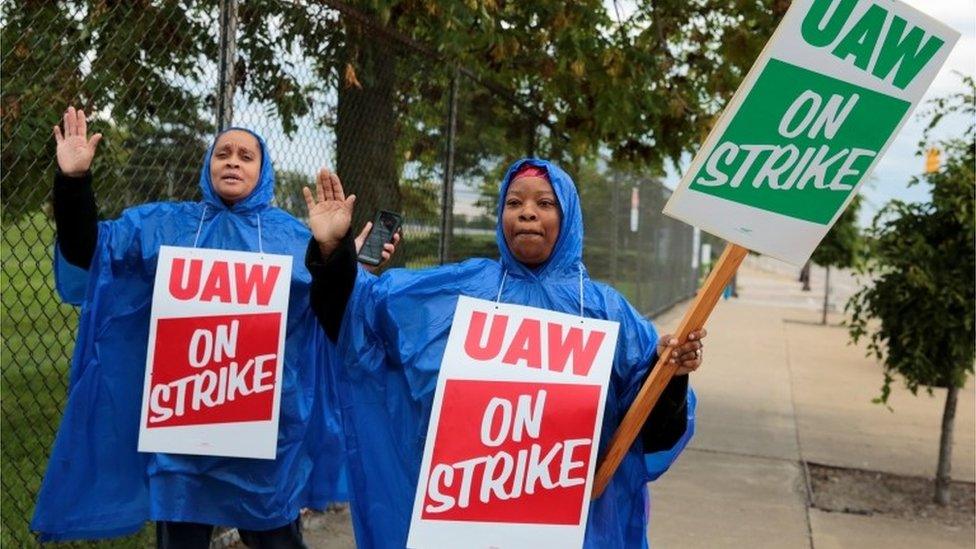General Motors auto workers strike in US
- Published

Workers began a strike against General Motors on Monday after America's biggest carmaker failed to reach a deal over pay and conditions with the United Auto Workers union (UAW).
Almost 50,000 workers are due to take part in the strike, the first major stoppage at GM since 2007.
"We do not take this lightly. This is our last resort," UAW vice-president Terry Dittes told reporters in Detroit.
The sides had set a Saturday night deadline to reach an agreement.
In the 2007 strike, a two-day stoppage cost $300m (£240m).
The union's previous four-year contract with GM expired this weekend, and the two sides had been holding negotiations on wide-ranging issues, including wages, healthcare, profit sharing and job security.
Also, the union has been fighting to stop GM from closing car assembly plants in Ohio and Michigan, which the company has said are necessary responses to changes in the market. Earlier on Sunday 850 maintenance workers at five GM facilities walked off the job on strike.
Mr Dittes said: "We are standing up for fair wages, we are standing up for affordable, quality health care. We are standing up for our share of the profits."
GM argues that its wages and benefits are among the best in the industry. The carmaker said in a statement that its offer to the UAW during talks included more than $7bn in new investments, more jobs, and pay and benefits increases. "We have negotiated in good faith and with a sense of urgency," GM said.
It remains unclear whether the two sides have plans for further negotiations.
The strike comes at a time when the US car industry is starting to see a slowdown in sales, and rising costs associated with investment in electric vehicles and curbing emissions.